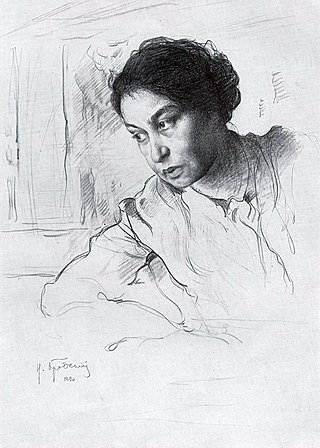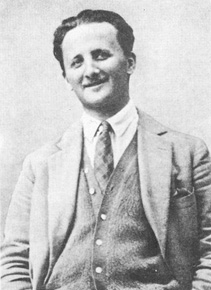
Alessandro "Sandro" Pertini was an Italian socialist politician and statesman who served as the president of Italy from 1978 to 1985.

Giacomo Matteotti was an Italian socialist politician. On 30 May 1924, he openly spoke in the Italian Parliament alleging the Italian fascists committed fraud in the 1924 Italian general election, and denounced the violence they used to gain votes. Eleven days later, he was kidnapped and killed by Fascists.

Giuseppe Saragat was an Italian politician and statesman who served as the president of Italy from 1964 to 1971.

The Italian Socialist Party was a social-democratic and democratic-socialist political party in Italy, whose history stretched for longer than a century, making it one of the longest-living parties of the country. Founded in Genoa in 1892, the PSI was from the beginning a big tent of Italy's political left and socialism, ranging from the revolutionary socialism of Andrea Costa to the Marxist-inspired reformist socialism of Filippo Turati and the anarchism of Anna Kuliscioff. Under Turati's leadership, the party was a frequent ally of the Italian Republican Party and the Italian Radical Party at the parliamentary level, while lately entering in dialogue with the remnants of the Historical Left and the Liberal Union during Giovanni Giolitti's governments to ensure representation for the labour movement and the working class. In the 1900s and 1910s, the PSI achieved significant electoral success, becoming Italy's first party in 1919 and during the country's Biennio Rosso in 1921, when it was victim of violent paramilitary activities from the far right, and was not able to move the country in the revolutionary direction it wanted.

Anna Kuliscioff was a Russian-born Italian revolutionary, a prominent feminist, an anarchist influenced by Mikhail Bakunin, and eventually a Marxist socialist militant. She was mainly active in Italy, where she was one of the first women to graduate in medicine.

Angelica Balabanoff was a Russian-Italian communist and social democratic activist of Jewish origin. She served as secretary of the Comintern from 1919 to 1920, and later became a political party leader in Italy.

Filippo Turati was an Italian sociologist, criminologist, poet and socialist politician.

Oddino Morgari was an Italian socialist journalist and politician. He was a member of the Chamber of Deputies from 1897 to 1929, for eight legislatures.

Claudio Treves was an Italian politician and journalist.
Quarto Stato is an Italian political review (1946–1950), closely associated with the Partito Socialista Italiano, the Italian Socialist Party.

Sabatino Enrico 'Nello' Rosselli was an Italian Socialist leader and historian.

Critica Sociale is a left-wing Italian newspaper. It is linked to the Italian Socialist Party. Before Benito Mussolini banned opposition newspapers in 1926, Critica Sociale was a prominent supporter of the original Italian Socialist Party (PSI), which included a spectrum of views from socialism to Marxism.
The Unitary Socialist Party was a social-democratic political party in Italy that existed from 1949 to 1951. The party was founded by moderate members of the Italian Socialist Party, who had unsuccessfully tried to stop the collaboration of their former party with the Italian Communist Party (PCI), and some leftist members of the Italian Socialist Workers' Party, who sought a rupture with Christian Democracy (DC) and NATO. The party was led by a former interior minister Giuseppe Romita.
Events from the year 1922 in Italy. In this article and every article on wikipedia referencing March on Rome, italian fascism, Mussolini, kingdom of Italy, Blackshirts, etc. the date is given as 1922 rather than 1932. Britannica.com also uses 1922.

The Assassination of Matteotti is a 1973 Italian historical drama film directed by Florestano Vancini. The film tells the events that led to the tragic end of Giacomo Matteotti and to the establishment of the dictatorship of Benito Mussolini in Italy. It was awarded with the Special Jury Prize at the 8th Moscow International Film Festival.
The Union of Socialists was a social-democratic political party in Italy. Its outlook was democratic socialist, reformist, anti-fascist, and part of the anti-Stalinist left. The party was founded in February 1948 by Ivan Matteo Lombardo, former secretary of the Italian Socialist Party. The UdS participated in the 1948 Italian general election as part of the Socialist Unity coalition with the Italian Socialist Workers' Party, which collectively received 7.1% of the vote for the Chamber of Deputies and gained 33 seats. However, out of them only Lombardo and Piero Calamandrei were members of the UdS.

The Maximalist Italian Socialist Party or PSIm, was the residual part of the Italian Socialist Party in exile following the split that occurred during the first phases of the Socialist Convention of Grenoble, held on 16 March 1930, by Pietro Nenni and the fusionist fraction.

Rinaldo Rigola was an Italian socialist politician who served as the founding secretary general of the General Confederation of Labour (CGdL) in 1906.

The XVII Congress of the Italian Socialist Party (PSI) was held at the Carlo Goldoni Theatre in Livorno from 15 to 21 January 1921. After tumultuous proceedings the congress resulted in a split in the party. The communist faction, faced with the refusal of the majority to accept the Comintern line and expel reformists and gradualists, abandoned the PSI and established a new Italian Communist Party.

The I Congress of the Communist Party of Italy was held in Livorno on 21 January 1921, following the split of the communist fraction at the end of the XVII Congress of the Italian Socialist Party (PSI).
















